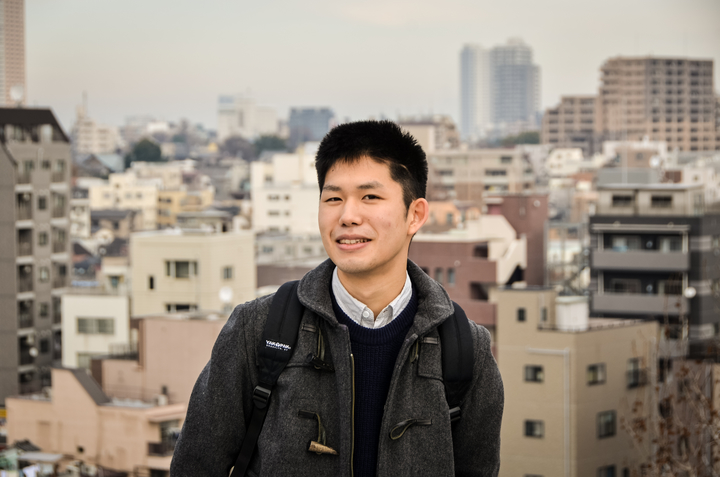Walking the Talk: Bansho Writes Fiction in University
2017.03.16
We interviewed Bansho for My Way Your Way in February 2013. In high school, he was writing tanka poetry and fiction as a member of his school's literature club. He put aside fiction writing temporarily while he studied for university entrance examinations, but said that he wanted to write full-length fiction after entering university. We asked him to tell us what he is thinking about today, while commuting to classes at the University of Tokyo Faculty of Science.
■Attempting a Light Novel
"I actually sent a novel I wrote after getting into university to an editor at a publishing company," Bansho says, surprising us with his enterprising efforts. One day, after getting into university, he decided to try writing a light novel and bought the first five titles he found on the light-novel shelf in a bookstore to study the craft. He wrote a 300-page novel. And then what happened, we asked?
"I got a call late one night, and was told "This isn't interesting at all!" I then wrote two more, but the response to them was the same. So I've given up writing light novels.
■Form or Message
When he was a high school student, Bansho said he didn't like stories that ended up with everyone living happy ever after when real life is full of so much that is illogical and irrational. He thought a novel should end with absurdities and contradictions just the way they are. But now, he says, he's no longer so concerned with matters of form, like whether a story has a happy end or not. "Perhaps I've grown more tolerant," he smiles. More important is what he is writing about. It was the "huge number of really interesting books" he read that changed his mind.
He knows, however, that readers and publishers tend to be focused on the format.
"In a movie, for example, if the characters and the story are really compelling, it's interesting no matter what the message is. So, if you work super hard on the forms--i.e., you make good characters and a good story--I think that produces the phenomenon of capturing the interest of the reader, no matter what your message is."
But Bansho continues. "Readers could be so distracted by the forms that they don't mind the message. That could be a danger." There could be a very strange message that the writer is attempting to plant in reader's minds. So that's something to be careful about, and possibly a good reason for writing that does not have a message.
Bansho says he likes stories of the ridiculous and funny. He loves not just stories that are fun but whatever is entertaining in general; in that respect he hasn't changed.
These days, he says, he's adopted a pattern of posting interesting material on Twitter once a month. In response to a recent tweet, my professor described my essay saying "it leaves nothing to pick up with chopsticks [i.e., light content] or a long pole [i.e., weighty content]"--i.e., hopeless--but what is an essay that can't be picked up with chopsticks, anyway?" By observing the reactions from my friends and younger schoolmates to my tweet, I try to find out what things appeal to them.
■Giving Writing One Last Chance
Bansho joined a literature club after entering university as well, and he has kept up a steady pace of writing one short novel every three months since then, each about 60 pages. Recently he's gotten fascinated with writing very short stories--of about 20 pages. He says he works out his story lines on the hour and a half commute to university from the apartment he shares with his elder brother.
Since starting university, Bansho says he began reading the newspaper in English, so his interest has grown not just in news about Japan but other countries and his awareness of various important issues has expanded. That, too, has had an impact on his fiction writing.
Still with plenty of material that he wants to write about, Bansho thinks he'll keep on writing for a while yet. "I'll give my writing one last chance," he says, "and if it's rejected, then I'll give it up for good."
It will be interesting to see what Bansho is doing in a few more years.
Interview: TJF Interview: December 2016 















